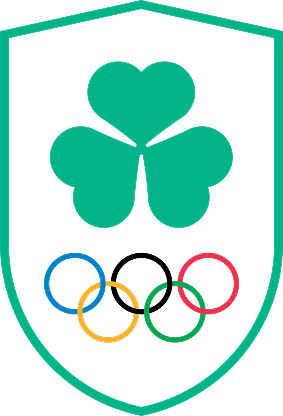New episodes are screened each Monday on RTE2, at 7.30pm
PROGRAMME 1:
TX: June 30,
The Challenge
Featuring… Derval O’Rourke, Sonia O’Sullivan, David Gillick, Alastair Cragg, Paul Hession
Since the foundation of the State, Ireland has secured just eight Olympic gold medals. By the time of the Beijing Games, it will be 52 years since our last track and field gold –Ronnie Delany’s victory in the 1500m in 1956. John Tracey (Silver, Marathon, 1984) and Sonia O’Sullivan (Silver, 5000m, 2000) came close, and so did Eamon Coghlan (4th place twice – in the 1500 meters in 1976 and the 5000 meters in 1980). And they were all very special athletes, world champions in their respective events. So, why, as another Games approaches, do we still expect so much from Ireland’s Olympians? Eight years after Ireland’s last medal, where will the next success come from? Is there any chance that success might come in track and field?
PROGRAMME 2:
TX : July 7
Irish Strengths
Boxing, Throwing, Shooting, Cycling, Walking
Featuring… Kenny Egan, Darren Sutherland (Boxing), Eileen O’Keeffe (Hammer), Derek Burnett (Shooting), Nicholas Roche, David O’Loughlin (Cycling), Olive Loughnane (Athletics)
Of the more than 300 gold medals to be awarded in an Olympics, just 47 can be won in athletics. A mere 34 are up for grabs in swimming, another of the highest-profile sports.
Recognising this, many nations have had significant success targeting events outside the mainstream, or by playing to their national strengths. Denmark has done well in badminton, handball and shooting, Sweden at jumps, Holland in hockey and cycling. In Athens, Australia finished fourth in the medals race, without winning a single athletics gold. Taking past performance in major championships as a guide, the statistics suggest that Ireland’s best Olympic hopes might lie in shooting, rowing, middle distance running, boxing, walking, hammer throwing and cycling.
PROGRAMME 3
TX: July 14
An Island Nation
Featuring… Gearoid Towey (Rowing), Ciara Peelo, Tim Goodbody (Sailing), Eoin Rheinisch (Canoeing)
As an island nation, Ireland might expect more success from water sports than a solitary Olympic medal – and that nearly three decades ago, at the Moscow Games, in 1980, when David Wilkins and Jamie Wilkinson took silver in the Flying Dutchman class. In Beijing, the nation will be represented by at least seven boats – in rowing, sailing and canoeing. The pride of the fleet, in recent years, has been the Men’s Lightweight Rowing Four, which has made the final of two of the last three Olympics – finishing fourth in Atlanta and sixth in Athens. In 2006, Gearoid Towey Paul Griffin, Richard Archibald and Eugene Coakley won the overall Rowing World Cup and took a bronze medal at the World Championships. They will be significant contenders at the Beijing Olympics – if they can qualify, but they’ve left it very late. “Ireland’s Olympians” follows the team to the final qualifying regatta in Poznan, Poland…
PROGRAMME 4:
TX: July 21
NO PAIN, NO GAIN
Featuring… Jamie Costin, Rob Heffernan, Derval O’Rourke, David Gillick, Mark Carroll, Olive Loughnane, Roisin McGettigan, Joanne Cuddihy (Athletics), Nicholas Roche (Cycling), Scott Evans (Badminton), Eoin Rheinisch (Canoeing)
Four years ago, just nine days before his event at the Athens Olympics, Jamie Costin, the international race walker, was involved in a near-fatal car crash. “We were training in a small town, outside Athens,” he recalls. “We had just finished for the day. I had dropped off my coach and physio and I was driving up a small country road. I was hit by a water truck, broke my back in two places.”
It was two years before he could compete again, making slow progress to the full walking distance of 50km, the longest endurance event on the athletics programme, and one of the most gruelling. Costin has now fought his way back, with no lasting effects, qualifying for the 2007 world championships and the 2008 Olympics.
Injuries, accidents, pain and discomfort are all occupational hazards for professional athletes. “Ireland’s Olympians” talks to Jamie Costin, Eoin Rheinisch and Nicholas Roche about the serious accidents they’ve all suffered – and recovered from – on the road to the Beijing Olympics.
PROGRAMME 5:
TX: AUGUST 4
The China Crisis
“In sporting terms, actually, we’re all up against China.”- Simon Clegg, chief executive of the British Olympic Association.
For the best part of a decade, China has been pumping resources into its sporting system – aiming to take top place in the medals table at the Beijing Olympics, toppling the USA from the spot it has held since the breakup of the Soviet Union. Shooting, diving, table tennis, badminton, weightlifting, gymnastics and rowing are among the events in which China expects to dominate. The world’s most populous country can pick its athletes from 1.3 billion people, indicating that China is home to more than two million potentially world-class athletes. China’s elite sporting system boasts 650,000 gymnasiums and stadiums, and supports an estimated 17,000 developing athletes.
Add to that the heat, the humidity, the pollution, the jetlag and the unfamiliar food and August looks set to be a torrid time for European athletes. “Beijing is probably the ultimate in terms of environmental challenges,” says Dr. Giles Warrington, Sports Science Advisor to the Olympic Council of Ireland. “It will be hot and very humid in Beijing at the time of the Games. Plus, the sun is incredibly strong.”
“The China Crisis” looks at the challenges facing Irish athletes in Beijing.
